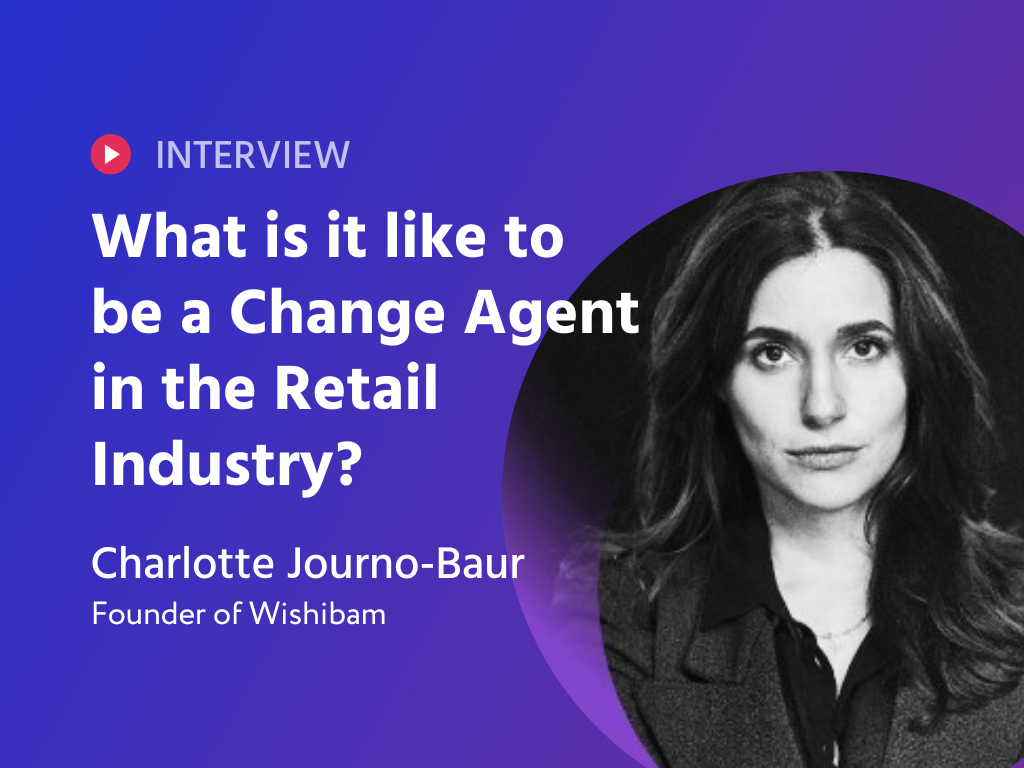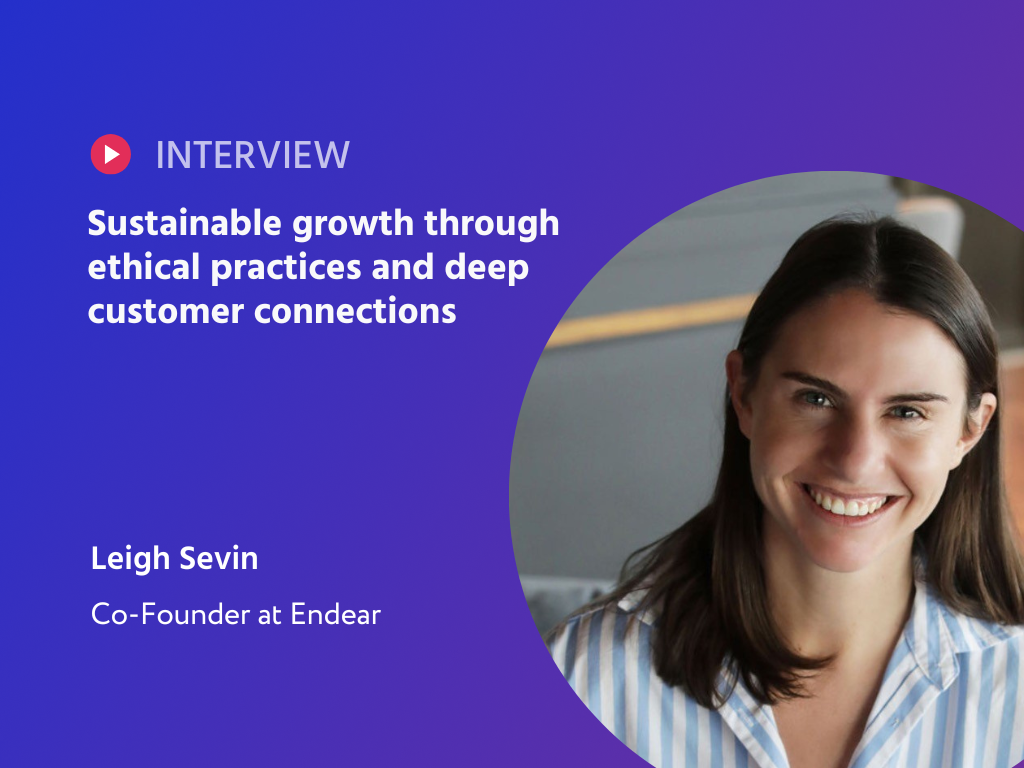In the ever-evolving world of software development, innovative minds are pushing the boundaries of what's possible, bringing us closer to a future where technology seamlessly integrates into every aspect of our lives. This week on "Bright Founders Talk" at Temy, an international software development company, we delve into the inspiring journey of Vicki Knott, the co-founder and CEO of CruxOCM.
Under Vicki's leadership, CruxOCM has pioneered the development of autonomous systems for operating pipelines, akin to autonomous driving for cars, but with a focus on the multi-billion-dollar infrastructure that powers our economy. From her early days as a chemical engineer in the pulp and paper industry to commanding the helm of a leading tech firm, Vicki's path is a testament to the transformative power of aligning one's career with their innate strengths and passions.
Join us as we explore how Vicki leveraged her deep understanding of heavy industry operations and her entrepreneurial spirit to revolutionize pipeline operations, ensuring safer, more efficient energy distribution with a reduced environmental footprint. Her story is not just about technological innovation but also about personal discovery and the courage to pursue a vision that challenges the status quo.
Pioneering Change: Vicki Knott on Steering Innovation in Pipeline Automation
Vicki Knott, a chemical engineer turned tech entrepreneur, is not just breaking barriers; she's building new pathways in an industry ripe for innovation. At Crux OCM, where she serves as CEO and co-founder, Vicki has been instrumental in introducing autonomous capabilities to pipeline operations—think NASA-like control rooms for multi-billion-dollar infrastructures. Her approach isn't just about automation; it’s about enhancing efficiency and energy consumption, ensuring that assets work smarter, not harder. "We've developed software to enable the autonomous operation of these assets, but with humans in the loop, increasing the energy available to consumers while reducing energy consumption," she explains.
We've developed software to enable the autonomous operation of these assets, but with humans in the loop, increasing the energy available to consumers while reducing energy consumption
Transitioning from the pulp and paper industry to oil and gas, Vicki's career trajectory has been anything but conventional. Her early exposure to advanced technology in traditional sectors highlighted the glaring disparities in pipeline infrastructures, sparking her resolve to effect change. "I've seen technology in pulp and paper, heavy industrial that's much more advanced than our most modern pipeline infrastructure. Something's a little off here, right? I think we can do better," she recalls. This realization set the stage for her entrepreneurial leap, guided not by a lifelong dream but a newfound calling uncovered through career counseling and self-discovery.
Crux OCM’s journey from concept to reality underscores the serendipitous blend of Vicki's professional insights and personal revelations. Her partnership with Roger, a seasoned expert in process control, catalyzed the birth of a startup that would tackle underserved automation needs in heavy industries. Despite her initial unfamiliarity with the startup ecosystem, Vicki's grit and innate entrepreneurial spirit—traits she attributes to her family's background in fishing—propelled her forward. "I believe entrepreneurship is a personality type," Vicki muses, reflecting on how her inherent traits meshed perfectly with the opportunities and challenges of her chosen field.
From Epiphany to Execution: Vicki Knott's Journey to Revolutionizing Pipeline Operations
Vicki Knott's journey to the forefront of pipeline automation technology was sparked by what she describes as an epiphany. Recognizing a massive gap and an even bigger opportunity in the industry, Vicki and her partner, armed with unique insights and deep understanding, were compelled to act. "It's almost silly, right? The industry needed this so badly that we couldn't not do it," Vicki shares, highlighting the astronomical potential returns and improvements in operational efficiency that could be achieved through their innovations. This realization wasn't just about spotting a business opportunity; it was about making a fundamental impact on how critical infrastructures operate more smartly and sustainably.
It's almost silly, right? The industry needed this so badly that we couldn't not do it
The excitement Vicki feels for her work isn't just about innovation; it’s about making complex systems simpler and more intuitive for the actual end-users—control room operators. She's driven by the challenge of redesigning heavy industrial software to better meet the needs of those at the controls rather than the engineers who traditionally influenced its architecture. "In the heavy industrial software space, it's been architected for the wrong end-user. We need to simplify that workflow, to strip away the nonsense that's destroying value," Vicki explains. This passion for simplification and user-centric design is what gets her up in the morning, a testament to her dedication to not just advancing technology but also enhancing the human elements of industrial operations.
As for the broader tech trends, Vicki is keenly aware of the shifts towards cloud technology and away from the traditional on-premises, air-gapped systems that have dominated her field. She argues that such a transition is crucial for integrating modern software capabilities that can significantly enhance the functionality and efficiency of existing assets. "Our most important data, like that in the banking industry, is managed with cloud technology and advanced software, so why not heavy industry?" she posits. This willingness to challenge the status quo and push for a re-architecture of industrial operations underscores Vicki's role not just as a CEO but as a visionary, redefining what's possible in heavy industrial operations with an eye towards future-proofing and innovation.
Unlocking Transparency in Industrial Automation: Vicki Knott's Vision for ‘Mini Bot’
Vicki Knott is introducing a transformative concept to the industrial world with her latest project, dubbed 'Mini Bot.' This innovative tool is set to demystify the operations of heavy machinery by providing real-time, understandable feedback to operators, akin to a GPS explaining its route to a driver. "Imagine your car explaining why it chose a particular path; that's what we're aiming for in heavy industry," Vicki enthuses. By equipping control room operators with the ability to query their systems about specific actions and decisions, 'Mini Bot' not only enhances operational transparency but also empowers a broader range of stakeholders by funneling crucial data directly into executive dashboards. This leap forward in operational clarity is akin to a retail giant mastering real-time inventory tracking—a game changer for asset-intensive industries.
Imagine your car explaining why it chose a particular path; that's what we're aiming for in heavy industry
Keeping pace with technological advancements in a sector known for its slow evolution poses unique challenges, according to Vicki. The energy sector underpins our economy, necessitating stability and robustness in its infrastructure. However, Vicki sees the sector's traditional slow adoption of new technologies not as a drawback but as a ripe opportunity for leapfrogging to cutting-edge solutions. "We're the last to change, which means we have the most to gain from catching up," she explains, positioning her company not just as a participant in the industry but as a driver of revolutionary change.
In discussing competition, Vicki describes her market approach as navigating a 'blue ocean'—a space with few direct competitors but dominated by the inertia of the status quo. Her company distinguishes itself by integrating advanced process control technology uniquely tailored for pipeline operations, setting them apart from both sleepy incumbents and other nascent ventures. "The biggest challenge isn't other companies; it's overcoming the entrenched way of doing things," Vicki notes, emphasizing the novelty and potential of their solutions. This fresh approach not only differentiates her company but also paves the way for a new standard in industrial operations.
Navigating Complexity with a Touch of Humility: Vicki Knott on Leading in Deep Tech
Vicki Knott, CEO and co-founder at Crux OCM, thrives on the complex challenges presented by her field, combining her background in chemical engineering with a passion for simplifying processes in the heavy tech industry. "I really enjoy the deep complexity," Vicki admits, expressing her affinity for the rigorous demands of heavy physics and mathematics inherent in her work. This enthusiasm for her niche is not merely about the technology itself but is deeply entwined with her drive to make these sophisticated systems more accessible and understandable to the people operating them daily.
I really enjoy the deep complexity
One unexpected challenge that Vicki has faced throughout her career is managing people's perceptions of their own abilities, particularly in high-stakes roles. "It's shocking... the number of people who don't have an idea that what they're doing isn't working," she reflects on her experiences with team members who struggle to recognize their own professional shortcomings. This insight has shaped her management style, which favors openness and adaptability over rigid control, drawing inspiration from philosophies outlined in her favorite business books like 'Team of Teams.'
When recruiting, Vicki values humility and the ability to accept and utilize feedback above all. She believes these traits are crucial for fostering a productive team environment and driving collective success. "Everyone says they can take feedback, but when they actually receive it, a lot of people just explode," she notes, emphasizing the importance of constructive criticism in her team dynamics. This approach not only helps refine processes but also supports a culture of continuous improvement, essential in a field as dynamic and impactful as industrial automation.




